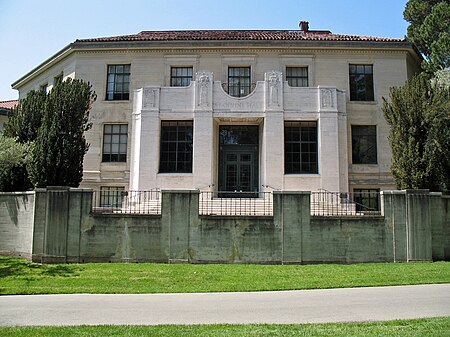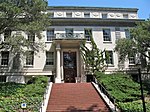The Institute of Transportation Studies (ITS) at the University of California's Berkeley, Davis, Irvine, and Los Angeles campuses are centers for research, education, and scholarship in the fields of transportation planning and engineering. Faculty members, staff researchers, and graduate students comprise this multidisciplinary institute network of more than 400 people, which administers an average of $20 million in research funds each year. ITS Berkeley is an organized research unit with nine affiliated organizations and an eight-member advisory council.
Two UC Berkeley academic departments, Civil and Environmental Engineering in the College of Engineering and City and Regional Planning in the College of Environmental Design, offer graduate and undergraduate courses in transportation engineering, planning, policy, economics, and technology, and confer degrees. ITS UC Irvine retains a graduate-only program, and includes faculty and students from the schools of Civil and Environmental Engineering, Economics, and Policy, Planning & Design. ITS provides a means for students to conduct research in their respective academic disciplines. Advisory council members are from the arenas of transportation, government, metropolitan planning, and academia.
The Institute of Transportation Studies was created at UC Berkeley in 1948 by the California state legislature to support the design and construction of the state's transportation system following World War II. Its original mission was "to conduct research and provide instruction to a new generation of transportation professionals" and it still serves that mission today. Alexandre Bayen is the Director.
Research partners include the Division of Research and Innovation at the California Department of Transportation, the Federal Highway Administration, and the Research and Innovative Technology Association at the United States Department of Transportation.






